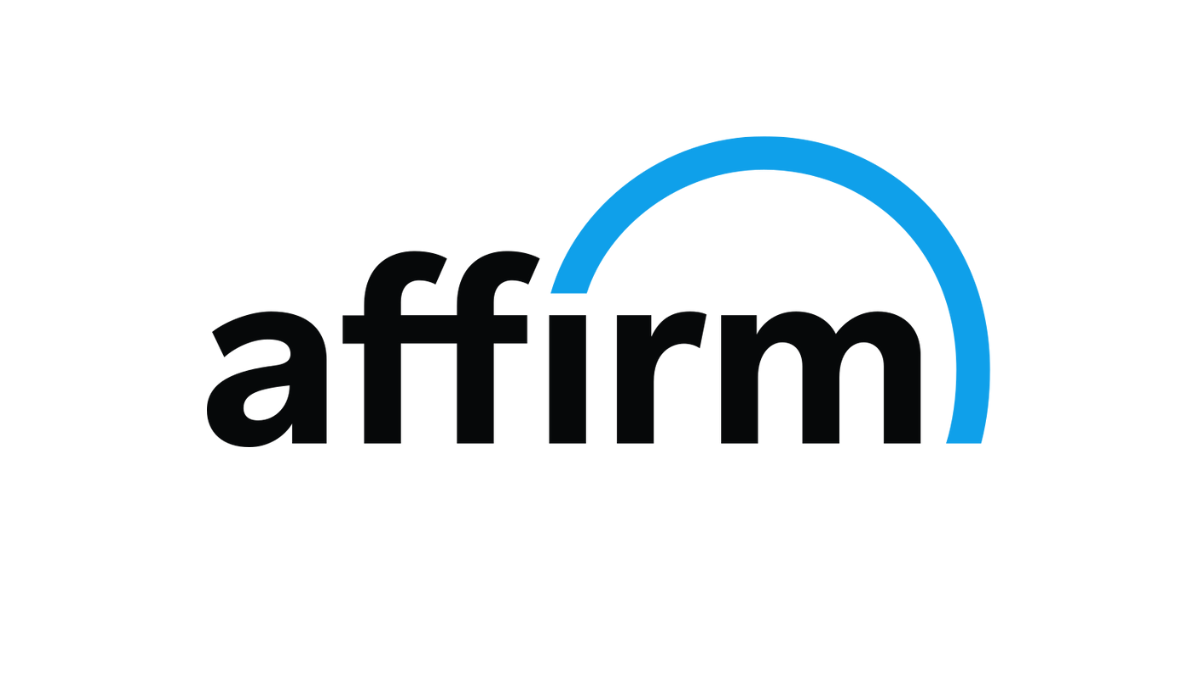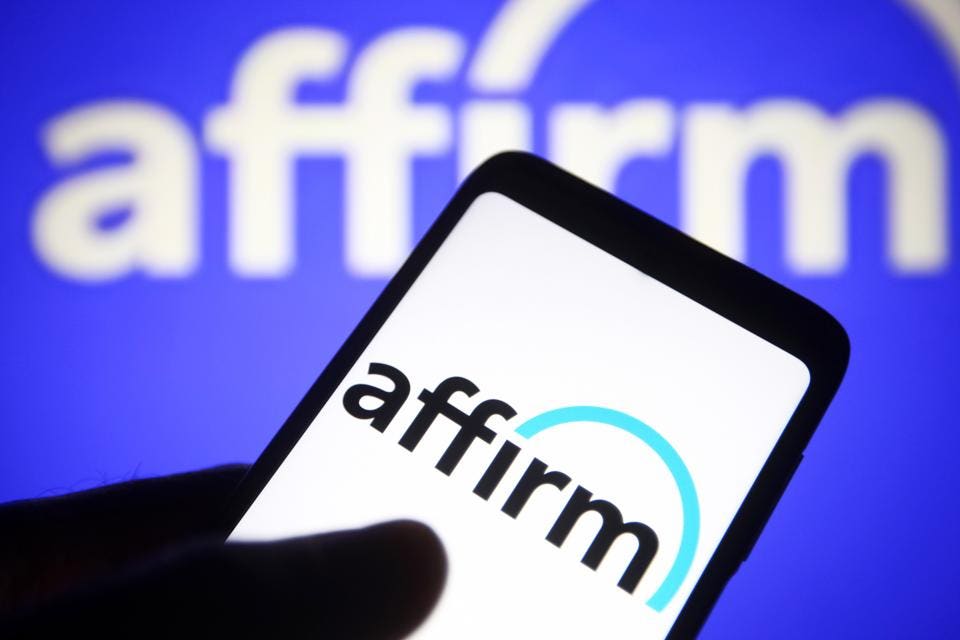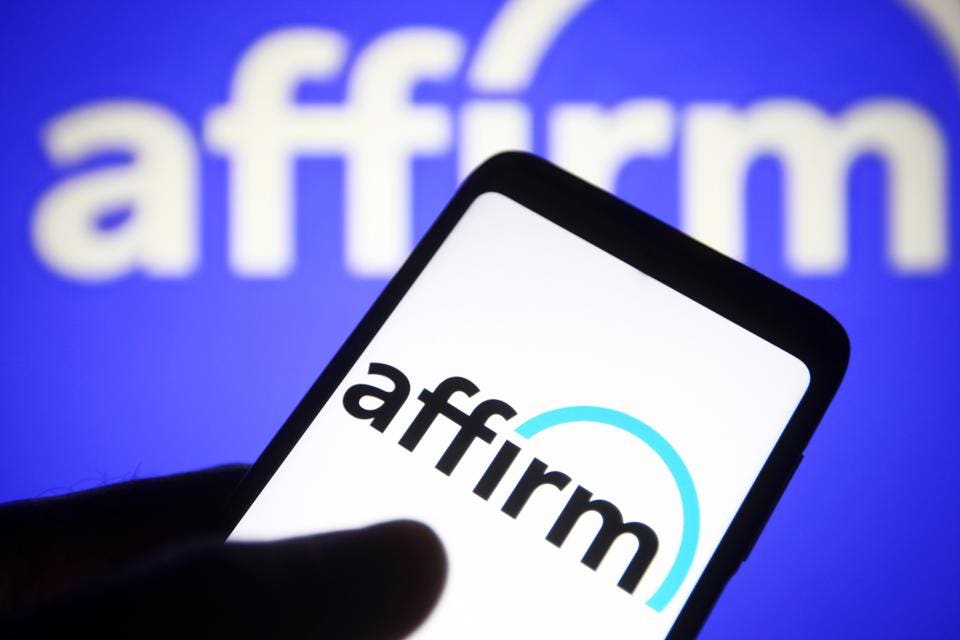Affirm Holdings Shares Plunge 21% on Outlook Miss, While Q4 Results Beat Estimates

Affirm Holdings, Inc. (NASDAQ:AFRM) shares plummeted more than 21% on Friday following the company’s strong Q4 results, but soft guidance.
EPS came in at ($0.65), in line with the Street estimate. Revenue was up 39% year-over-year to $364.1 million, beating the Street estimate of $354.66 million.
However, while the company reiterated its timeline to sustainable profitability by the end of fiscal 2023, revenue and GMV (Gross Merchandise Volume) guidance for 2023 came in well below expectations as the company acknowledged difficult comps and a level of conservatism due to the macro environment that is just beginning to weaken.
For Q1/23, the company expects revenue in the range of $345-365 million, compared to the Street estimate of $386.02 million. GMV is anticipated to be in the range of $4.20-$4.40 billion.
The company expects full 2023-year revenue to be in the range of $1.625-1.725 billion, compared to the Street estimate of $1.91 billion. GMV is anticipated in the range of $20.50-$22.00 billion.
| Symbol | Price | %chg |
|---|---|---|
| 4338.HK | 1600 | 0 |
| CYBR.JK | 1340 | 0 |
| 377300.KS | 50700 | 0 |
| MSFT.NE | 35.54 | 0 |

Affirm Holdings, Inc. (NASDAQ:AFRM) Earnings Preview: Key Insights
- Projected Revenue Growth: Affirm is expected to report a revenue increase of 26.7% year-over-year, reaching $885 million.
- Challenges Ahead: High interest rates and market volatility could moderate revenue growth, despite a positive outlook.
- Financial Health: Affirm showcases a strong liquidity position with a current ratio of approximately 54.19, but a high debt-to-equity ratio of about 2.56.
Affirm Holdings, Inc. (NASDAQ:AFRM) is a prominent player in the buy now, pay later (BNPL) sector. The company is set to release its quarterly earnings on November 6, 2025. Wall Street estimates the earnings per share (EPS) to be $0.10, with projected revenue of approximately $882 million. Affirm's performance in the upcoming earnings report is crucial for investors.
The Internet Software sector, which includes Affirm, is expected to benefit from increased demand due to advancements in artificial intelligence, cloud computing, and automation. These technological trends have likely contributed to the projected revenue growth for Affirm. The company is anticipated to report a revenue increase of 26.7% year-over-year, reaching $885 million, as highlighted by Zacks.
Despite the positive outlook, Affirm faces challenges due to high interest rates and market volatility. These factors could moderate the otherwise robust revenue growth in the industry. Affirm's financial metrics reveal a strong liquidity position, with a current ratio of approximately 54.19. This indicates that the company has ample current assets to cover its current liabilities. However, the debt-to-equity ratio of about 2.56 shows that Affirm uses a significant amount of debt financing relative to its equity.
Investors should pay close attention to the management's discussion during the earnings call, as it will be crucial in assessing the sustainability of any immediate price changes and future earnings projections. A positive earnings per share (EPS) surprise could influence the stock's price, while a miss in expectations might lead to a decline.

Affirm Holdings, Inc. (NASDAQ:AFRM) Financial Overview and Stock Sale
- Jiyane Siphelele, the Chief Accounting Officer of Affirm Holdings, Inc. (NASDAQ:AFRM), sold 12,500 shares at $85.42 each, retaining 213,967 shares.
- The company's high price-to-earnings (P/E) ratio of 560.21 and price-to-sales ratio of 8.95 reflect significant investor interest and confidence in its growth potential.
- Affirm's debt-to-equity ratio of 2.56 indicates a high level of leverage, which may pose risks but also underscores an aggressive growth strategy.
Affirm Holdings, Inc. (NASDAQ:AFRM) is a leading financial technology company that offers installment loans to consumers at the point of sale. Founded in 2012, Affirm provides a transparent and flexible alternative to traditional credit, competing with other buy-now-pay-later services like Afterpay and Klarna. On September 15, 2025, Jiyane Siphelele, the Chief Accounting Officer, sold 12,500 shares of Class A Common Stock at $85.42 each, retaining 213,967 shares.
Recently, Affirm has garnered significant investor attention, as reported by Zacks.com, suggesting potential growth opportunities or strategic initiatives that could influence the stock's performance. Despite a high P/E ratio of 560.21, indicating a high valuation relative to its earnings, investor interest remains strong.
The company's price-to-sales ratio of 8.95 suggests that investors are willing to pay nearly nine times the company's sales per share, reflecting confidence in Affirm's growth potential. Moreover, the enterprise value to sales ratio of 10.97 further highlights the company's total valuation in relation to its sales.
Affirm's enterprise value to operating cash flow ratio of 44.55 indicates a high valuation compared to its cash flow from operations. The company's earnings yield is relatively low at 0.18%, which may concern some investors. However, Affirm's strong current ratio of 54.19 demonstrates its robust ability to cover short-term liabilities with short-term assets.
The debt-to-equity ratio of 2.56 shows that Affirm has more than twice as much debt as equity. This level of leverage may pose risks, but it also highlights the company's aggressive growth strategy. As investors continue to closely monitor Affirm, these financial metrics will be crucial in shaping their investment decisions.

Affirm Holdings Inc. (NASDAQ: AFRM) Earnings Preview: Key Insights
- Projected Earnings: Wall Street analysts anticipate an EPS of $0.11 and revenue of approximately $837 million.
- Stock Volatility: Historically, Affirm's stock has shown a negative one-day return in 65% of cases post-earnings, with significant volatility.
- Growth Drivers: The company's growth is attributed to an increase in GMV, active merchants and consumers, and virtual card usage.
Affirm Holdings Inc. (NASDAQ:AFRM) is a fintech company that specializes in buy now, pay later services and point-of-sale payment solutions. As the company prepares to release its quarterly earnings on August 28, 2025, Wall Street analysts have projected an earnings per share (EPS) of $0.11 and revenue of approximately $837 million. This announcement is highly anticipated, as it could influence the stock's performance.
Affirm's stock has a history of volatility following earnings releases. Over the past five years, the stock has shown a negative one-day return in 65% of cases, with a median decline of 10.9%. The most significant single-day drop reached 22.6%. This pattern may attract traders who focus on event-driven strategies, as highlighted by Investors Business Daily.
The company's growth in the fourth quarter is driven by an expansion in Gross Merchandise Volume (GMV), an increase in active merchants and consumers, and a rise in virtual card usage. Affirm's stock has risen by 30.5% year-to-date, outperforming its peers and the S&P 500. However, the stock is currently trading at a high valuation, which may pose challenges.
Affirm continues to benefit from strong consumer growth and strategic partnerships. The company's price-to-sales ratio stands at 8.36, indicating that investors are willing to pay $8.36 for every dollar of sales generated. The enterprise value to sales ratio is 10.36, reflecting the company's valuation in relation to its revenue.
Affirm's financial metrics reveal a mixed picture. The enterprise value to operating cash flow ratio is 39.54, providing insight into the company's cash flow generation relative to its valuation. The debt-to-equity ratio is 2.56, indicating that the company has more than twice as much debt as equity. However, the current ratio is an impressive 63.09, suggesting that Affirm has a strong ability to cover its short-term liabilities with its short-term assets.

Affirm Holdings, Inc. (NASDAQ:AFRM) Insider Sale and Market Performance
- Robert O'Hare, CFO of Affirm, sold 77,800 shares at $80.09 each, indicating significant insider activity.
- Zacks Investment Research ranks AFRM as a top momentum stock, suggesting strong market performance and potential for investors.
- AFRM's current trading price is $79.49, with a 6.71% increase today, reflecting its market volatility and investor interest.
Affirm Holdings, Inc. (NASDAQ:AFRM) is a financial technology company that offers buy now, pay later services, allowing consumers to make purchases and pay for them over time. The company competes with other fintech firms like Afterpay and Klarna. On August 22, 2025, Robert O'Hare, the CFO of Affirm, sold 77,800 shares of Class A Common Stock at $80.09 each.
Despite this insider sale, Affirm is recognized as a top-ranked momentum stock by Zacks Investment Research. This indicates strong market performance, suggesting that AFRM could be an attractive option for investors. The Zacks Style Scores highlight AFRM's potential to outperform the market, making it appealing for those seeking market-beating stocks.
Currently, AFRM is trading at $79.49 on the NASDAQ, showing a $5 increase today, which is a 6.71% rise. The stock's price today ranged from $74.15 to $80.41. Over the past year, AFRM's price has varied significantly, with a high of $82.53 and a low of $30.02, reflecting its volatility.
Affirm's market capitalization is approximately $25.65 billion, indicating its size and market presence. The trading volume today is 8,376,596 shares, showing active investor interest. Despite the insider sale, the stock's recent performance and recognition by Zacks suggest continued investor confidence in AFRM.

Affirm Holdings, Inc. (NASDAQ: AFRM) Stock Update
Affirm Holdings, Inc. (NASDAQ:AFRM) is a prominent player in the financial technology sector, offering innovative payment solutions that facilitate installment loans for consumers at the point of sale. This positions Affirm as a direct competitor with other fintech giants in the buy-now-pay-later market, such as Afterpay and Klarna. Here's a closer look at the company's recent stock performance and upcoming financial announcements.
- Katherine Adkins, the Chief Legal Officer of Affirm, sold 1,329 shares at $75 each, still holding 113,400 shares.
- Affirm's stock has shown a 5% increase over the past four weeks, signaling investor confidence.
- The company is scheduled to release its Q4 fiscal year 2025 financial results on August 28, 2025.
Despite a recent sale by a key executive, Affirm's stock has demonstrated resilience and potential for growth, surpassing its 20-day moving average—a sign that may indicate a short-term bullish trend. With a 5% rally in the past four weeks, investor optimism seems to be on the rise.
Affirm currently holds a Zacks Rank #3 (Hold), with positive earnings estimate revisions hinting at the possibility of further upward movement in the stock price. However, it's noteworthy that AFRM's stock experienced a 4% decline over the past month, a contrast to the Zacks S&P 500 composite's 0.6% increase and the Zacks Internet - Software industry's 2.6% gain. This discrepancy highlights the volatile nature of the fintech market and the challenges Affirm faces amidst stiff competition. The upcoming release of Affirm's fourth-quarter fiscal year 2025 financial results could provide critical insights into the company's performance and strategic direction. Investors and analysts will be keenly watching for these results, available on the company's investor relations website, followed by a detailed conference call and webcast.
As of now, AFRM's stock price stands at $74.86, with a slight increase of 0.09%. The stock has seen fluctuations between $71.41 and $75.13 on the trading day, with a yearly high of $82.53 and a low of $23.89. With a market capitalization of approximately $24.15 billion and a trading volume of 6,500,831 shares on the NASDAQ exchange, Affirm continues to be a significant entity in the fintech space, navigating through market dynamics and investor expectations.

Affirm Holdings Inc (NASDAQ:AFRM) Targets Growth in the BNPL Sector
- Price Target Set: Rayna Kumar from Oppenheimer sets a price target of $80 for AFRM, indicating a potential upside of 16.11%.
- Strategic Focus: AFRM emphasizes vertical integration to enhance profitability amidst regulatory challenges and competition.
- Financial Performance: In Q3 of fiscal year 2025, AFRM's revenues surged by 36%, and its adjusted operating margin improved by 860 basis points.
Affirm Holdings Inc (NASDAQ:AFRM) is a key player in the Buy Now, Pay Later (BNPL) sector. The company is known for its innovative approach to consumer financing, allowing customers to make purchases and pay over time. AFRM competes with other BNPL companies like Afterpay and Klarna. On July 21, 2025, Rayna Kumar from Oppenheimer set a price target of $80 for AFRM, suggesting a potential upside of 16.11% from its current price of $68.90.
AFRM is focusing on vertical integration to boost profitability in a competitive market. By handling underwriting, loan origination, and collections internally, the company aims to cut costs and improve margins. This strategy is crucial as AFRM faces challenges from regulators, high interest rates, and competition. The company uses proprietary algorithms and funding to enhance loan performance and net interest margins.
In the third quarter of fiscal year 2025, AFRM's revenues increased by 36%, and its adjusted operating margin improved by 860 basis points compared to the previous year. This growth highlights the effectiveness of AFRM's strategic initiatives. The company is taking control of more aspects of the BNPL value chain to gain a significant market advantage.
Currently, AFRM's stock price is $68.90, reflecting a decrease of 0.82% or $0.57. During the trading day, the stock fluctuated between $66.94 and $70.40. Over the past year, AFRM's stock reached a high of $82.53 and a low of $22.25. The company has a market capitalization of approximately $22.23 billion, with a trading volume of 4.21 million shares today.

Affirm Holdings, Inc. Faces Setback and Investigation
- Affirm Holdings, Inc. (NASDAQ:AFRM) stock price dropped by $6.38 per share, or 12.74%, following Klarna's announcement as Walmart's new BNPL provider.
- Pomerantz LLP investigates potential securities fraud or unlawful business practices by Affirm and its executives.
- Affirm's stock continues to decline, with a current price of $35.02, amidst ongoing volatility and market scrutiny.
Affirm Holdings, Inc. (NASDAQ:AFRM) is a leading financial technology company that offers Buy Now, Pay Later (BNPL) services, enabling consumers to make purchases and pay for them over time. The company recently encountered a significant challenge when Klarna, a competitor in the BNPL space, announced it would replace Affirm as Walmart's exclusive BNPL provider. This news led to a sharp decline in Affirm's stock price.
Following Klarna's announcement, Affirm's stock price dropped by $6.38 per share, or 12.74%, closing at $43.70 on March 18, 2025. This decline prompted Pomerantz LLP to investigate potential securities fraud or unlawful business practices by Affirm and its executives. Pomerantz LLP, known for its expertise in securities class actions, has a history of securing substantial damages for investors.
In the wake of these events, Rabois Keith, a director at Affirm, sold 4,600 shares of Class A Common Stock at $44.77 per share on April 1, 2025. Despite this sale, Keith still holds 56,920 shares in the company. This transaction was reported on Form 4, filed with the SEC on April 3, 2025, and is available on the SEC's website.
Currently, Affirm's stock is priced at $35.02, reflecting a further decrease of approximately 10% or $3.89. During the trading day, the stock fluctuated between a low of $30.91 and a high of $36.11. Over the past year, Affirm's stock has experienced significant volatility, with a high of $82.53 and a low of $22.25.
Affirm's market capitalization stands at approximately $11.2 billion, with a trading volume on the NASDAQ exchange of 12,968,714 shares. As the investigation by Pomerantz LLP unfolds, investors are keenly watching for any developments that could impact Affirm's stock performance and overall market position.







